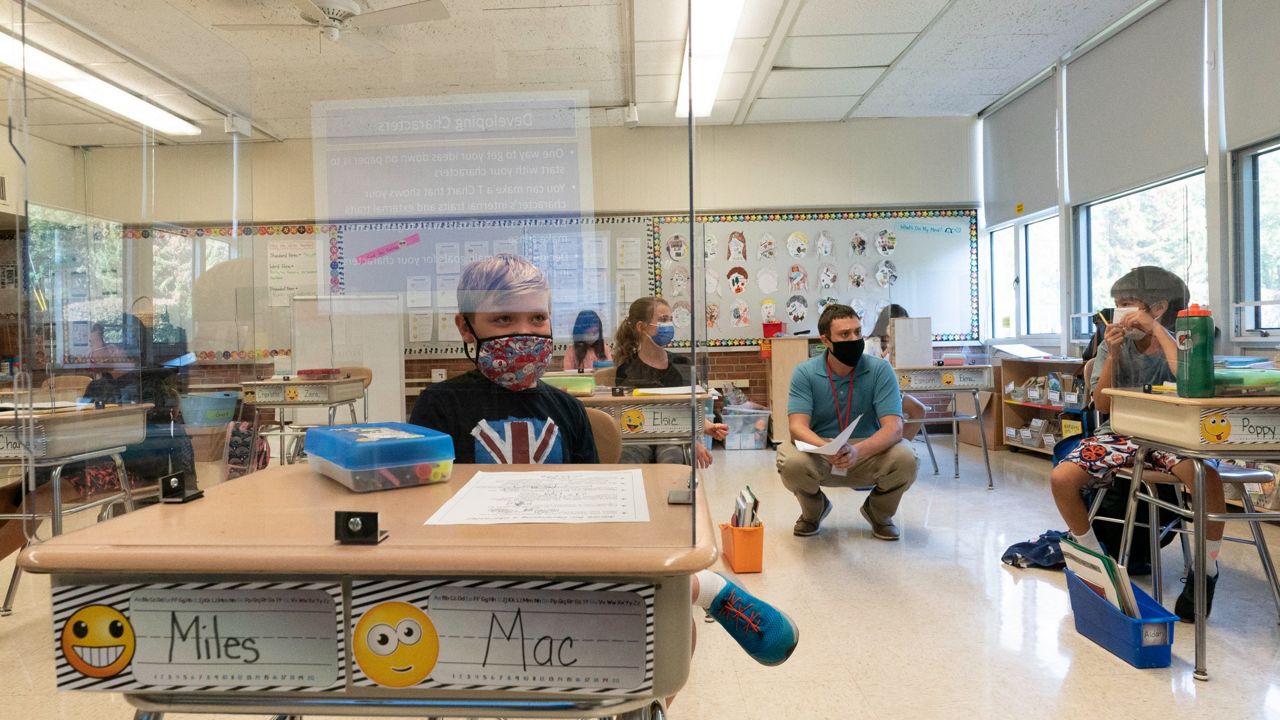Data released Thursday show the toll the COVID-19 pandemic has taken on students, as 9-year-olds, for the first time in decades, showed declines in reading and math compared to two years earlier.
What You Need To Know
- Data released Thursday show the toll the COVID-19 pandemic has taken on students, as 9-year-olds, for the first time in decades, showed declines in reading and math compared to two years earlier
- According to the National Assessment of Educational Progress, given early this year, the average reading scores fell by nine points and math scores by seven points
- The decline in the reading score was the largest since 1990, and it was the first setback in math since the long-term trend assessment began in the 1970s
- In an interview with Spectrum News on Thursday, Education Secretary Miguel Cardona blamed the Trump administration, saying it failed to take the steps needed to ensure students did not fall off-track because of the pandemic
According to the National Assessment of Educational Progress, given early this year, the average reading scores fell by nine points and math scores by seven points compared to early 2020, just before the coronavirus outbreak forced schools to shut down and students to learn remotely.
The decline in the reading score was the largest since 1990, and it was the first setback in math since the long-term trend assessment began in the 1970s. The scores are on par with where they were two decades ago. The report, often called the “Nation’s Report Card,” is the first national assessment comparing student achievement pre-pandemic to today.
“These are some of the largest declines we have observed in a single assessment cycle in 50 years of the NAEP program,” said Daniel McGrath, the acting associate commissioner of National Center for Education Statistics, which oversees the exam. “Students in 2022 are performing at a level last seen two decades ago.”
The numbers show 9-year-olds — typically third- and fourth-graders — across the board have fallen behind, but the situation is even worse for the lowest performing students. For example, students in the 90th percentile saw their reading scores decline by two points on average and their math scores fall by three points. But students in the 10th percentile saw a 10-point drop in reading and a 12-point decline in math on average.
Even before the pandemic, lower performing students were already experiencing declines, the NCEA said.
While the performances of students in every race were weaker, the gap between white and Black students widened further in math. White students’ scores fell by five points on average, while Black students saw a 13-point decline. Both groups scored six points lower in reading compared to 2020.
In an interview with Spectrum News on Thursday, Education Secretary Miguel Cardona blamed the Trump administration, saying it failed to take the steps needed to ensure students did not fall off-track because of the pandemic.
“I'm concerned anytime gaps are widened [and] achievement drops, but I think it's a reflection of the pandemic — the impact of the pandemic — but also a reflection of incompetence at the highest levels in the last administration,” he said. “Very little direction to districts and to states. There was a lot of rhetoric, but very little action.”
Cardona praised President Joe Biden for pushing for and signing the $1.9 trillion COVID-19 relief bill, the American Rescue Plan, early in his presidency that, in part, dedicated money to helping schools fully reopen. The education secretary said funding from the package is still available to help students catch up.
“We're going to turn that data around, and we're going to lift up our students,” he said. “ … I'm concerned about it [the test scores], but I have a lot of hope because of the actions taken by our president and our educators who now have American Rescue Plan dollars to support our students.”
Cardona said students need highly qualified teachers, mental health support, “high-dosage tutoring” and higher standards, and teachers need support. His comments come amid the nation grappling with a teacher shortage as schools reopen for the fall.
The NCES later this year plans to release a more comprehensive report on student achievement of fourth- and eighth-graders.



